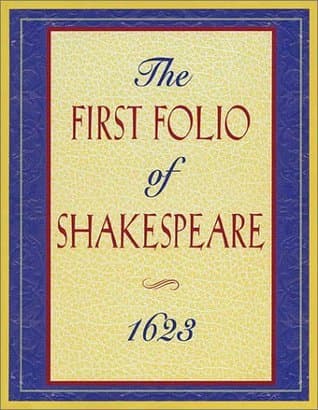
Book Review Summary: The First Folio of Shakespeare: 1623
Introduction
"The First Folio of Shakespeare: 1623" is a comprehensive collection of Shakespeare's plays, published in 1623. This book contains some of his most renowned works, including comedies, histories, and tragedies. It is a valuable resource for Shakespeare enthusiasts and scholars alike, offering a glimpse into the world of the Bard and his impact on literature. In this article, we will explore the author's background, analyze the views of readers, and summarize the reasons for both recommending and not recommending this book.
About William Shakespeare
William Shakespeare, born in 1564, is widely regarded as the greatest writer in the English language and the world's pre-eminent dramatist. He is often referred to as England's national poet and the "Bard of Avon." Shakespeare's surviving works consist of 38 plays, 154 sonnets, two long narrative poems, and several other poems. His plays have been translated into every major living language and continue to be performed more often than those of any other playwright. Shakespeare was born and raised in Stratford-upon-Avon and began his career in London as an actor, writer, and part owner of the Lord Chamberlain's Men. He produced most of his known work between 1590 and 1613, leaving behind an enduring legacy that continues to captivate audiences worldwide.
Analysis of Views
-
A Must-Have for Shakespeare Lovers: Many readers consider "The First Folio of Shakespeare: 1623" an essential book for those who love Shakespeare's works. It offers a unique perspective on the plays by presenting them in their original spelling, providing valuable insights for actors and enthusiasts alike.
-
A Different Reading Experience: Some readers appreciate the Elizabethan spelling used in the book, finding it fascinating and helpful in understanding how words were pronounced during Shakespeare's time. This unconventional spelling adds an extra layer of authenticity to the text.
-
A Beautiful Fascimile: The book is praised for its gorgeous facsimile edition, which captures the essence of the original First Folio. The printing quality and attention to detail make it a valuable addition to any Shakespeare collection.
-
A Compilation of Timeless Classics: The collection includes some of Shakespeare's most renowned plays, such as "The Tempest," "Romeo and Juliet," and "Macbeth." Readers enjoy exploring these timeless classics and discovering the depth and complexity of Shakespeare's writing.
-
A Challenging but Rewarding Read: While some readers find the original spelling challenging at first, they ultimately appreciate the experience. It requires patience and practice to get used to it, but the rewards are worth the effort.
Reasons for Recommendation
-
Experience Shakespeare's Work in Its Original Form: "The First Folio of Shakespeare: 1623" offers readers a chance to engage with Shakespeare's plays in their original form, providing a unique reading experience that deepens their understanding of the Bard's works.
-
Authenticity and Historical Significance: The book preserves the original spelling and formatting of Shakespeare's plays, making it an authentic representation of his works as they were first published. This historical significance adds value to the collection for scholars and enthusiasts alike.
-
A Comprehensive Collection: The book includes a wide range of Shakespeare's plays, from comedies to histories and tragedies. It offers readers a comprehensive overview of his diverse body of work, allowing them to explore different genres and appreciate his literary genius.
Reasons for Not Recommendation
-
Challenging Spelling: Some readers find the Elizabethan spelling used in the book challenging to read at first. It requires patience and practice to get used to it, which may be a deterrent for those seeking a more accessible reading experience.
-
Limited Content: The book only includes the plays from the First Folio, which may be a drawback for readers who are interested in reading all of Shakespeare's works in one volume. It is important to note that this edition does not include the sonnets or other poems by Shakespeare.
Conclusion
"The First Folio of Shakespeare: 1623" is a valuable resource for those who appreciate Shakespeare's works and wish to engage with his plays in their original form. It offers readers a chance to experience authenticity, explore a comprehensive collection of timeless classics, and gain a deeper understanding of the Bard's literary genius. While some readers may find the Elizabethan spelling challenging or limiting, the overall consensus is that this book is an essential addition to any Shakespeare collection. Whether you are an actor, scholar, or simply a lover of literature, "The First Folio of Shakespeare: 1623" provides an unparalleled opportunity to immerse yourself in the world of William Shakespeare.